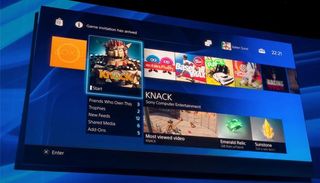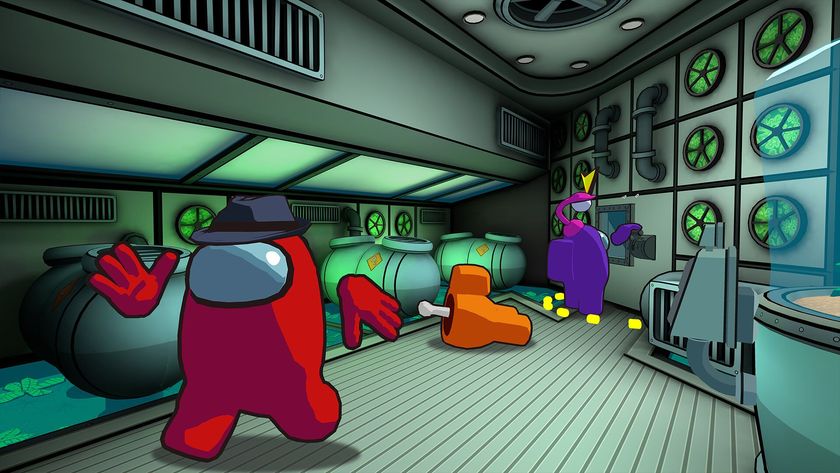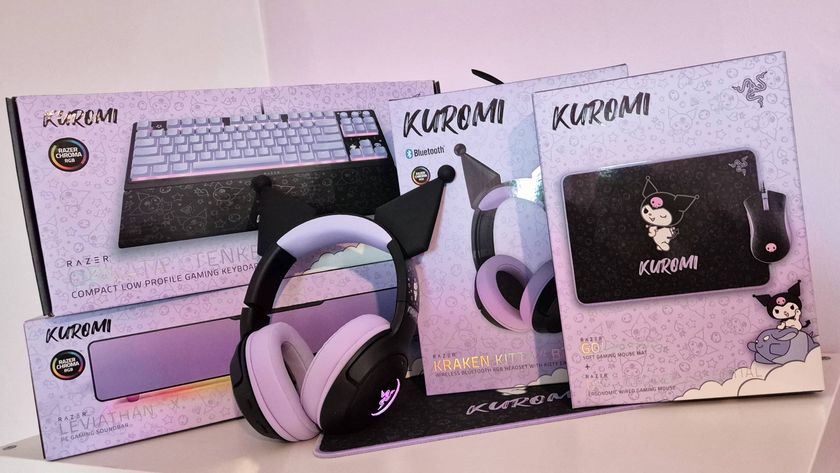Why would Microsoft do this again?
So, to recap: Broadband internet is still far from a universal thing. Even in some Xbox markets where broadband is available, it may not be strong and fast enough for families and/or people with many connected devices to support an always-on machine. Its owners might have to plan more carefully around data caps. Some people would need to take on new monthly payments to get the necessary quality of internet. Lots of people play online all the time now and would probably be fine, but many of them still don't enjoy consistently smooth experiences.
If the internet ever went out at an always-on Xbox owner's house, they might not be able to use the console. If something ever tampered with Microsoft's servers and infrastructure, they might not be able to use the console. (Remember this?) As it stands right now, millions of people across the globe physically can't get broadband internet and thus would not be able to use the console. Microsoft might not be looking to sell an Xbox to these people in the first place, but it'd undoubtedly be limiting its potential consumer base by default.

Would we be ready for an always-on Xbox? Technically, many of us would, especially those who currently game online with any regularity. But a significant number of current Xbox owners wouldn't, and an even larger number of non-Xbox owners would struggle even if they wanted to jump onboard.
So why would anyone want to do this again?
Well, remember, we're only speculating here. But as we noted in our list of outstanding Xbox Infinity questions, the most common assumption is that an always-on console would benefit game developers and publishers more than anyone else. Always-on tech allows for persistent online authentication and other such forms of DRM, which more than a few companies consider a good defense against pirates and used-game sales. The effectiveness of DRM has been debated countless times over the years, but in general many industry types still believe that it's an effective-enough way to get as much of a game's revenue into the hands of the people who made it.
Of course, there are countless consumers who would disagree and say that they've suffered through poorly connected games for no reason other than DRM. In fact, the biggest problem an always-on Xbox would probably face has nothing to do with broadband adoption or latency issues; it's the wave of consumer anger that would surface from a relatively small but very vocal group of staunch anti-always-on advocates. The saga of Adam Orth shows just how much of a public relations nightmare an always-on machine could be.
Either way, an always-on DRM console would be unprecedented. It would lay the framework for any studio that wanted to enable authentication policies to do so. But, as plenty of developers are quick to argue, making a game "always-on" doesn't necessarily mean that its games would have to support DRM policies.
Sign up to the 12DOVE Newsletter
Weekly digests, tales from the communities you love, and more

"In and of itself, just being always-on is not a giant panacea for piracy or used games. A second shoe would need to drop," says Nick Beliaeff, SVP of development at Defiance developer Trion Worlds. For those who aren't aware, Defiance is an always-on, subscription-free MMO that launched on both consoles and PCs last month.
"For example, physical retail as a source for new games would have to go to zero," he continues. "Buying 100 percent digital where the console first-party knows for a surety whether a player bought something or not is one way to stop piracy or used game sales. Assuming greater than zero percent retail, if a disc does not also have a redemption code that has to be entered, piracy is still relatively straightforward. A console being always-on by itself without a second step really does not move the needle."
Instead, while Beliaeff firmly believes that offline gaming "will not, and should not, go away," he does think that an always-on machine could benefit players by challenging developers to step outside of their "normal box-product-only comfort zone."
"I am a big fan of console games reinforcing things that consoles do well and staying away from their weaknesses," he says. "I would hope that developers would be inspired by the console being always-on to take full advantage of that.
"Just own the boss battle in record time? Press a button and upload to YouTube. Tired of the soundtrack? Stream in your own music from any internet source. Need a new map? Download one from the community. I also think it is a great foundational step for building and then maintaining community. Make friends, carry that outside of the console by linking with Facebook or the like."
Sony has already said that it will be utilizing similar features in its PS4, so it may not be such a surprise to see Microsoft encourage its developers to do the same. Nevertheless, Beliaeff believes that forcing always-on onto everyone would be an unwise move.

"Just because the console is always-on does not mean every game has to make use of it," he notes. "If you are great at making immersive solo play games, keep doing what you are great at and do not let the always-on feature mess you up. It is an option to support, I think a great option to support, but not a mandate."
Akamai gaming analyst Kris Alexander notes that an ideal always-on console could further benefit consumers by letting them bypass the potentially slow download times that come with connecting to faraway servers. Instead of forcing your console to connect to wherever Microsoft's servers are, he posits, the interconnectedness of always-on consoles could let them download game updates and other such content through each other.
Even if an always-on Xbox couldn't give players that much luxury, it would be more closely aligned with how technology has evolved since the Xbox 360 was introduced almost a decade ago. Always-on tech may not be accepted in gaming yet, but it's hard to deny the impact it has had on countless other industries already. (Lest it not be said, this article you're reading right now was written using the always-on Google Docs.) An always-on Xbox would undoubtedly be a more "modern" machine--one that might not feel so dated in 10 years if the world's internet continues to improve. For some developers that are working with dated hardware today, this may even sound refreshing.
"Current-gen consoles are 6-7 years old," notes Beliaeff. "That is just scary. Why I like the console being always-on is that this now becomes the de facto standard and there will be no little code gremlins hiding out. The experience will be smooth for everyone. That is a big win and, frankly, a step in the right direction. The internet becomes more ubiquitous in our lives on a daily basis. Next-gen consoles should be forward thinking in its technology and capability, not worried about the current lowest common denominator."
So... this is happening, isn't it?
Not necessarily--we'll possibly find out in a few days. But Microsoft isn't stupid. It sees how omnipresent the internet is becoming in everything, and it probably wants to get the Xbox aboard that train ahead time. Of course, it knows that many in the industry aren't big fans of piracy and used games either.
Plus, for all the consumer outrage that surrounded always-on games like Diablo III and SimCity, it realizes that millions of people bought them anyway. Because let's face it: Gamers will buy games that excite them. (Even when they shouldn't.) If the next Xbox puts out must-have software, people will get it, always-on anger be damned.
But as we've shown, the internet's perceived ubiquity is still far from, well, ubiquitous. And for some developers, eliminating consumers who physically can't get broadband from the equation entirely would be a disheartening move.
"Of course, a lot of this is up to the implementation," says Rami Ismail, one half of Ridiculous Fishing developer Vlambeer, about Microsoft's possible always-on aspirations. "Steam is 'always-on' and its offline mode is a reasonable compromise. In general, we wouldn't be all that happy with that. For Jan Willem [Nijman, the other half of the studio], it would be a dealbreaker--he doesn't even have an internet connection at his place. As long as there is no way to make sure not a single gamer gets left out due to a restriction like that, we're not going to be supporting that."
Phil Tibitoski, president of Octodad: Dadliest Catch developer Young Horses, echoes similar sentiments. When it comes to the DRM debate, he finds that a strictly always-on console wouldn't make much of a difference to would-be pirates of his games either way.
"We would be less likely to work with a system that used always-on DRM, because in principle alone we don't agree with it," Tibitoski says. "I believe that if someone wants to buy our game and we present them with highly accessible and low-effort ways to do so then they'll buy it. The more steps you create between a player seeing something they like and being able to buy/play it, the less likely they are to ever pay for it.
"The players who do pirate our game are people who are unlikely to have ever bought it in the first place. It's a reality that isn't really worth worrying about when we have much more important things to do, like making games."

Even if going always-on becomes a wise move for Microsoft in the long term, it could still put a notable amount of pressure on the company to maintain its infrastructure, provide quality customer service, and other constant requirements for a worldwide service. As Beliaeff notes, there'd be no such thing as an "optimal downtime" for a global, always-on Xbox if Microsoft needed to implement updates or perform maintenance. It would feasibly take a lot of work to keep everyone connected at all times.
"In the end, I think we cannot lose sight that if you have an always-on game like Defiance, or an always-on console, at that point you are committed to providing a 24/7 service and that requires a fundamental mentality switch in how you deal with your players," Beliaeff says.
"If you are communicative about what you are doing and why, people will embrace you. If you lag at communication, try and hide or gloss over facts, etc., players will vilify you. I do think a successful switch to always-on will lead to better service for players overall, though."
But even with all these presumed requirements, worrisome internet statistics and mixed signals, the success of an always-on Xbox is going to come down to how consumers feel. Plenty have bought always-on games in the past. Many have enjoyed them. And all the trends point to online services becoming more prevalent where the Xbox is popular. But as Tibitoski explains, those who don't want to see an always-on future can cast a powerful vote with their wallets.
"Really if you are that against something like this, or DRM, then do not buy it. It's as simple as that. You can vote with your disposable income and put it towards things you do support."
Most Popular





